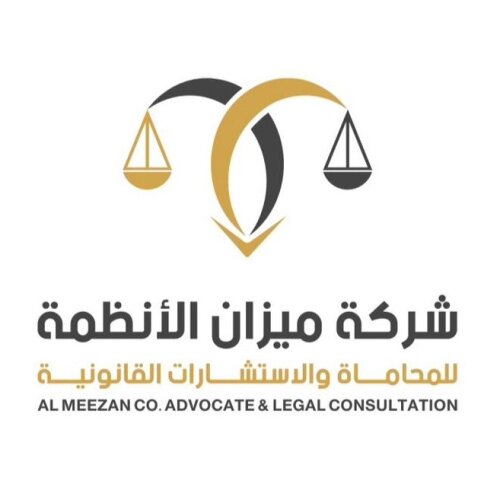Best Landlord & Tenant Lawyers in Makkah
Share your needs with us, get contacted by law firms.
Free. Takes 2 min.
Free Guide to Hiring a Real Estate Lawyer
List of the best lawyers in Makkah, Saudi Arabia
About Landlord & Tenant Law in Makkah, Saudi Arabia
Landlord & Tenant law in Makkah, Saudi Arabia regulates the rights and responsibilities of both landlords and tenants in relation to property renting. It covers various aspects such as lease agreements, rent collection, property maintenance, eviction procedures, and dispute resolution.
Why You May Need a Lawyer
Seeking legal advice from a lawyer specializing in Landlord & Tenant matters in Makkah is advisable in several situations:
- If you have questions about your rights and obligations as a tenant or landlord
- If you need assistance in drafting or reviewing a lease agreement
- If you have concerns about the condition of the property or need help with repairs
- If you are dealing with issues related to rent payment, eviction, or any legal disputes
- If you want to ensure that your rights are protected and understand the legal implications involved
Local Laws Overview
In Makkah, Saudi Arabia, several key aspects of Landlord & Tenant law are particularly relevant:
- Lease agreements must be in writing and in Arabic, clearly specifying the terms and conditions.
- The landlord is required to provide the tenant with a property in good condition and maintain it throughout the tenancy.
- The tenant is responsible for paying the agreed-upon rent on time and using the rented property for its intended purpose.
- Eviction can only take place in specific circumstances defined by law, and proper notice must be provided.
- Disputes between landlords and tenants can be resolved through negotiation, arbitration, or by approaching the relevant authorities.
Frequently Asked Questions
1. Can a landlord increase the rent during the tenancy?
In Makkah, the landlord can only increase the rent if it is specified in the lease agreement. If there is no provision for rent increase, the landlord cannot do so during the tenancy.
2. How much notice does a landlord have to give to evict a tenant?
The notice period for eviction depends on the reason for eviction. Generally, a minimum of three months' notice is required, but it may vary depending on the circumstances and local laws.
3. Can a landlord enter the rented property without the tenant's permission?
A landlord can enter the rented property for necessary inspections or repairs after informing the tenant in advance. In case of emergencies, the landlord may enter without notice.
4. What can a tenant do if the landlord fails to make necessary repairs?
If the landlord does not fulfill their responsibility to maintain the property, the tenant can formally request repairs in writing. If the landlord still fails to act, the tenant may approach the relevant authorities or file a lawsuit seeking remedies.
5. Is it possible to terminate a lease before the agreed-upon term?
Terminating a lease before the agreed-upon term can be complex. It is advisable to refer to the lease agreement and seek legal advice to understand the rights and obligations of both parties. Generally, early termination may require mutual agreement or payment of penalties as per the terms of the lease agreement.
Additional Resources
For further assistance and information, consider contacting:
- Ministry of Municipal and Rural Affairs
- Local Housing Authority in Makkah
- Local District Court in Makkah
- Legal Aid organizations in Makkah
Next Steps
If you are facing legal issues related to Landlord & Tenant in Makkah, Saudi Arabia, here are the recommended next steps:
- Evaluate your specific situation and determine the nature of your legal concern.
- Gather all relevant documentation, including your lease agreement and any correspondence with the other party.
- Consider seeking legal advice from a lawyer specializing in Landlord & Tenant matters.
- Discuss your case with the lawyer, provide all necessary information, and follow their guidance.
- If required, take appropriate action, such as negotiation, filing a complaint, or pursuing legal proceedings, as advised by your lawyer.
Lawzana helps you find the best lawyers and law firms in Makkah through a curated and pre-screened list of qualified legal professionals. Our platform offers rankings and detailed profiles of attorneys and law firms, allowing you to compare based on practice areas, including Landlord & Tenant, experience, and client feedback.
Each profile includes a description of the firm's areas of practice, client reviews, team members and partners, year of establishment, spoken languages, office locations, contact information, social media presence, and any published articles or resources. Most firms on our platform speak English and are experienced in both local and international legal matters.
Get a quote from top-rated law firms in Makkah, Saudi Arabia — quickly, securely, and without unnecessary hassle.
Disclaimer:
The information provided on this page is for general informational purposes only and does not constitute legal advice. While we strive to ensure the accuracy and relevance of the content, legal information may change over time, and interpretations of the law can vary. You should always consult with a qualified legal professional for advice specific to your situation.
We disclaim all liability for actions taken or not taken based on the content of this page. If you believe any information is incorrect or outdated, please contact us, and we will review and update it where appropriate.













